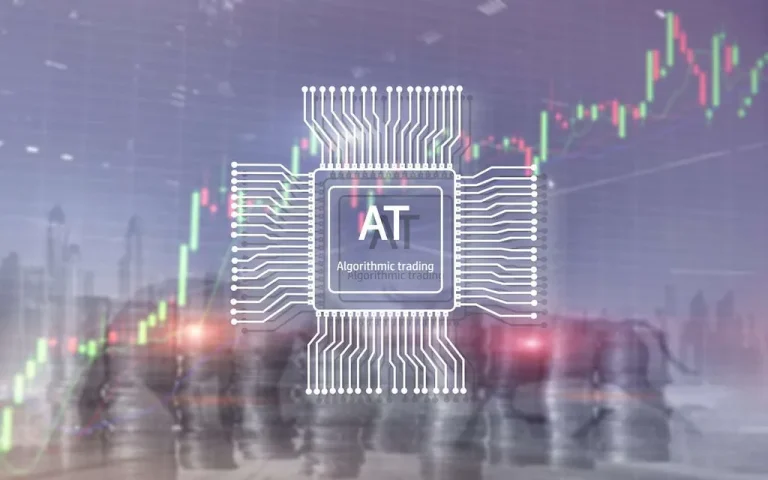A comparable model can be quite than an investor buying one hundred shares of Apple, contemplate a hedge fund selling one hundred,000 shares. The difference between executing brokers and clearing brokers is one thing most investors never at any level think about. In the mannequin, if you place the order to buy a hundred shares, that order goes to the executing dealer https://www.xcritical.com/.
- This affiliation ranks among the many brokerage’s most important, underpinning the seamless orchestration of commerce processes.
- Compensation for executing brokers is sourced from commissions tied to the buy-sell unfold, with the execution relayed to the settlement and clearing unit of the prime brokerage.
- To open a prime brokerage account, you’ll generally want a substantial quantity of assets beneath administration (AUM), a requirement that can vary but just isn’t designed for the common retail investor.
- They act as intermediaries between the investor and the market, executing trades on behalf of their shoppers.
Markets
The key to working with a top-tier prime broker is building sturdy relationships, which can help increase consciousness of your hedge fund and improve your status as a model. This is very essential should you’re looking to climb the ranks and become a top-tier hedge fund. Having access to a top-tier prime dealer could be a challenge, as they usually solely work with the largest clientele.
Understanding the settlement course of and the totally different settlement strategies might help market individuals make knowledgeable selections and handle settlement dangers effectively. When a commerce is executed, it is not considered complete until the buyer has acquired the securities and the vendor has received the cash. During clearing, the small print of the commerce are matched, and the buyer and seller’s accounts are debited and credited accordingly. In other words, clearing is the method that makes it possible for a securities transaction to be accomplished.
Prime Dealer Vs Executing Broker: How Do They Work In Monetary Markets?
Executing brokers concentrate on commerce execution, whereas clearing brokers guarantee trade settlement and proper clearing. Execution brokers are the individuals who check that their shopper’s orders are viable for their brokerage. On the off probability that they think about that the commerce is viable, they may “execute” that trade by sending it to a clearing dealer, in any other case known as a clearinghouse.
In the world of monetary transactions, the roles of executing brokers and clearing brokers play pivotal but distinct roles. Understanding the differences between these two entities is crucial for comprehending the intricacies of trades, transactions, and the overall functioning of economic markets. An executing dealer is a broker or vendor that processes a buy or sell order for the good factor about a client. Assuming the order is dismissed, the customer is advised, and the security is not traded. For hedge funds or institutional shoppers that have proactively been certified, an endeavor to take care of a request is promptly dealt with. In the intricate panorama of investment, executing brokers play a pivotal role, serving as the conduit via which retail investors channel their transactions.
They survey the order for legitimacy, both personally or electronically, and afterward send the order to the exchange. Retail traders typically trade online or via a monetary advisor who may send their orders to a broker. Since accounts are set up in a way to safeguard traders, orders are first evaluated for suitability. For example, within the occasion that a shopper’s aim is capital preservation, an order to buy a speculative biotechnology inventory on margin would doubtlessly be dismissed.
Clearing brokers charge clearing fees to cowl the prices of processing and clearing trades by way of the central clearinghouse. Prime brokers sometimes have a large network of relationships with different monetary establishments, which permits them to provide shoppers with access to a extensive range of products and services. A clearing broker works for an trade and is the individual who really makes the commerce. The executing broker places the trade, however it really should be performed by a clearing broker earlier than being delivered again to the executing dealer and their consumer. There are a quantity of clearinghouses around the globe, including the Depository Belief & Clearing Corporation (DTCC), which handles the clearing and settlement of trades within the United States. Other examples embrace Euroclear and Clearstream, that are based mostly in Europe, and the Hong Kong Securities Clearing Company, which handles clearing and settlement in Hong Kong.
They act as intermediaries between the investor and the market, executing trades on behalf of their purchasers. These brokers could provide analysis, advisory companies, and entry to varied financial markets to assist clients in making knowledgeable investment decisions. Once the order has been routed to the suitable market, the executing dealer should make certain that the trade is executed correctly. This involves matching the buyer and vendor, confirming the commerce details, and making certain that the trade is executed at the appropriate worth. The clearinghouse is an intermediary that stands between the client and the vendor. Its function is to ensure the transaction and to ensure that it goes smoothly.

Once the transaction is through, the clearing broker will obtain the order actually to settle the commerce. This consists of recording the assets concerned by patrons and sellers and receiving the invested quantity in exchange for the requested shares. Reverse to PBs, who work primarily with institutional buyers, execution-only brokers also cooperate with retail brokers, processing their market orders at a low value slippage and tight unfold ranges. If the stock is traded on an trade executing broker (for example, the NYSE), it can ship the order directly to that exchange, to another change, or to a third market maker. If the inventory trades in an over-the-counter (OTC) market such as Nasdaq, the broker could ship the order to that market maker. One of the key services supplied by executing brokers is order execution, where they analyze the order request and check whether or not it meets the validity criteria.
This consists of conducting thorough background checks to detect suspicious actions and finalize the verification. To be eligible to use a prime brokerage, you’ll typically want a considerable amount of belongings beneath management. Prime brokers could lend out securities to different clients for a charge, generally identified as stock borrowing. Margin lending is one other service that enables purchasers to borrow cash utilizing their securities as collateral.

The quantity of margin lending out there can range primarily based on the shopper’s Belongings Beneath Management (AUM) and relationship with the prime broker. Executing brokers, on the other hand, are responsible for executing trades on behalf of their clients. They have direct access to the buying and selling flooring and might execute trades quickly and effectively. These brokers supply trading and execution companies in change for bid-ask spread commissions and different managerial and handling charges.
Commerce execution services are normally supplied as a part of the prime brokerage capabilities, the place an executing broker is concerned with discovering a counterpart order for the trader’s requested market place. Introducing Brokers, Clearing Brokers, and Executing Brokers each play important roles in the financial trading ecosystem. While IBs concentrate on client relationships and referrals, Clearing Brokers ensure the correct settlement of trades, and Executing Brokers are answerable for the precise buying and promoting of securities.

To open a major brokerage account, you may usually need a considerable quantity of assets beneath administration (AUM), a requirement that may range however isn’t designed for the average retail investor. Clearing fees depend on the type of asset being traded, the volume of trades executed, and any further companies supplied by the clearing broker. Prime brokers offer comprehensive money management options that cover a range of features.
These investors often interact in on-line trading or collaborate with financial advisors, who transmit their directives to brokers. To safeguard investor interests, a preliminary screening course of is initiated to make sure suitability. For occasion, an order seeking speculative acquisition of margin-based biotechnology shares would possibly face rejection if incongruent with a consumer’s capital preservation goal.
By understanding the important position of the executing broker, traders can ensure that their trades are executed accurately and settled promptly. In the world of finance, buying and selling Volatility (finance) securities is a fancy and multi-step process that involves many events, together with executing brokers, clearinghouses, and settlement brokers. One of the important steps in this process is commerce execution and confirmation, which includes making certain that the order is executed correctly and accurately recorded. The executing broker plays an important position in the clearing and settlement process. Without their involvement, trades would not be executed, and the method would grind to a halt. The executing dealer acts as the intermediary between the customer and seller, making certain that the commerce is executed accurately and in a timely method.


